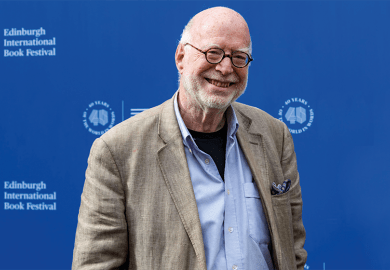Scholars are split on how to justify to taxpayers the use of public money for arts research.
A debate entitled "Researching the arts - why bother?" organised by the Institute of Ideas last week asked: "Do the arts have to re-brand themselves as useful to justify public money?"
And although all the contributors to the debate at King's College London agreed that humanities and arts research had merit, there was little consensus on what this was.
Both Richard Howells, director of the Centre for Culture, Media and Creative Industries at King's, and Jonathan Bate, professor of renaissance literature at the University of Warwick, recalled having to justify their existence to those outside academe.
Dr Howells' encounter with a sheep farmer who did not consider his PhD to be "work" led him to ponder that "by researching the arts we are researching ourselves".
While the farmer, like the current Government, may have been more impressed by economic arguments, Dr Howells was scathing on this front. "The income-generating purpose of arts is being treated as its raison d'etre," he said. "We need to get back to the meaning, not just to the uses and utilities of arts."
Professor Bate recounted a conversation with a civil servant from the Department of Innovation, Universities and Skills, who said he did not lose sleep over giving money to medical research, but was more concerned when it came to the arts. "I like riding my horse but don't expect the taxpayer to pay for it," the civil servant had said.
Professor Bate said that "to people dying of cancer, the search for a cure is meaningless" - what they really need is "bibliotherapy": literature that will help them navigate their grief and despair.
Institute of Ideas director Claire Fox criticised much research into the arts as "justifying research into the arts - a waste of time".
"There's too much defensiveness in this," she said, criticising Professor Bate's example: "Dying or alive, you should read books."
Ms Fox maintained that both the arts and sciences were facing a squeeze on "blue-skies" research.
"This reflects society's attitude to knowledge," she said. Open-ended, intellectually risky inquiry is being constricted by a culture that believes that only a limited number of questions remain to be answered, she argued.
melanie.newman@tsleducation.com
ACCUSED: NO CHANCE OF A-HUG FOR AHRC
A new group representing arts and humanities researchers has criticised the Arts and Humanities Research Council (AHRC) for failing to resist the creation of a controversial new European journal ranking system.
The Arts and Humanities User Group (A-HUG), a group of 17 learned societies and subject associations, was set up earlier this year amid growing frustration over a number of AHRC endeavours. It has written to the council, accusing it of a "failure" to play an "appropriate role" in representing the UK academic community to the European Science Foundation - which is behind the European Reference Index for Humanities (ERIH).
Academics fear that the ERIH will be used inappropriately to judge research quality.
The AHRC said it had received the letter and was in communication with A-HUG but had no comment to make.
Register to continue
Why register?
- Registration is free and only takes a moment
- Once registered, you can read 3 articles a month
- Sign up for our newsletter
Subscribe
Or subscribe for unlimited access to:
- Unlimited access to news, views, insights & reviews
- Digital editions
- Digital access to THE’s university and college rankings analysis
Already registered or a current subscriber? Login



